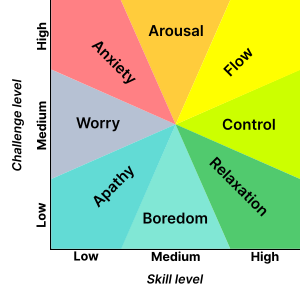Learning Theories Asia E University Pdf
What are your main reasons for using the e- Library resources?
Table of contents for Learning theories Table of contents for Learning theories: an educational perspective / Dale H. And links to related information available from the Library of Congress catalog. Note: Contents data are machine generated based on pre-publication provided by the publisher. Contents may have variations from the printed book or be incomplete or contain other coding.
- Learning Theories. Posted on August 3. (Asia E-university, 2002). Social learning theory and behaviorism agree that experience is an important cause in.
- Role of Learning Theories in Training While Training the. King Saud University. Learning theories provided some key principles of learning so that.
Memory

Learning Theory: Behaviorism Overview Behaviorist learning theory is developed on the principle of “stimulus-response”. The theory operates on the thesis that all behavior is caused by external stimuli; the learner is passive responding to both positive and negative reinforcement. All behavior is in response to the environment around the learner, with no consideration to internal mental states or consciousness. Contributors Originator and important contributors to behaviorist theory are:. John B. Watson’s work demonstrated the role of conditioning in the development of emotional responses to certain stimuli (Mergel, 2008). Ivan Pavlov who experimented with the conditioning of a dog that when a bell was rung the dog would anticipate being fed and begin to salivate (Mergel, 2008).
Skinner pointed out how the principles of operant conditioning function in social institutions such as government, law, religion, economics and education (Mergel, 2008). Thorndike who theorized that learning was the formation of a connection between stimulus and response. (Mergel, 2008) Major Principles The learner begins as tabula rasa, basically a blank slate. The learner’s behavior is then shaped by the various stimuli that make up the environment in which the learner is immersed. Both positive and negative reinforcement increase the probability that the antecedent behavior will happen again. However, punishment decreases the likelihood that the antecedent behavior will happen again. Learning takes place as the learner adapts or modifies their behavior based upon positive or negative stimuli.
Logo Asia E University
Classical conditioning is a type of learning in which the learner associates a stimulus that would not ordinarily elicit a particular response with that of another stimulus that does elicit the response (Papalia, 2007). Operant Conditioning or instrumental conditioning is a form of learning in which the consequences of behavior leads to changes in the probability that the behavior will occur (Asia E-university, 2002). Social learning theory and behaviorism agree that experience is an important cause in learning, in that learning takes place through observing or watching and imitating other people. This is also referred to as modeling or observational learning (Asia E-university, 2002). Application Applying behaviorist theory in education can be effective in developing both education skills and social skills in the learner. Educators should recognize and reinforce positive behavior and learner accomplishments. Educators should use various types of reinforcement such as demonstrative approval and providing privileges.
Punishment should be used sparingly and consistently. It is important to punish only inappropriate behavior and not learner personal traits. It is then essential to inform learner to that behavior for which the learner is being punished so that the inappropriate behavior can be identified. (Asia E-university, 2002) References Asia E-university. Learning theories – behaviorism.
Retrieved June 23, 2013, from: Mergel, B. (2008, March 11).
Instructional design and learning theory. Retrieved June 23, 2013, from iinet.net.au PDF Instructional design and learning theory: Papalia, D.
Asia E University Malaysia Kuala Lumpur


Human development 10th Edition. Boston, MA: McGraw Hill.